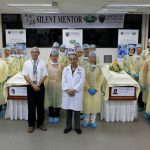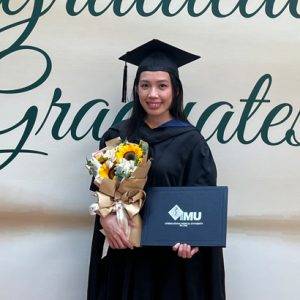There is great variability in how higher education institutions plan and carry out the educational experiences required of health professional students. The reasons for this variability include the regional and institutional education policy, accreditation, healthcare needs, internationalisation, global migration, commodification, and commercialisation.
21st century health professions educators are faced with the challenges of educating learners. The trends in educating health professionals are evolving to keep track with the global changes in healthcare needs and demand. The continuous effects of Covid-19 pandemic are creating uncertainties in various facets of the higher education system and changing the culture of learning from face-to-face teaching to online learning. The effects are significant throughout the world. The discussion for the appropriate teaching and learning initiatives is ongoing as the countries learned to manage the complexities of the Covid-19 pandemic.
As the saying goes “Within every adversity is the seed of equal or greater opportunity”-Napoleon Hill. The repercussion of the pandemic has greatly impacted healthcare, healthcare professions, and its educational landscape specifically curriculum development, and assessments. As a result, educators in health professions face an increasingly challenging environment as they are required to ensure that the training will meet the needs of future health professionals, society, and healthcare services. This realisation led them to seek further professional qualifications that will equip them with the appropriate knowledge and skills.
Traditionally, there had been a naïve expectation that content experts would also automatically be good educators. Around the mid-1970s, most institutions have begun to develop and implement formal programmes to improve the teaching abilities of their academic staff to ensure that educators have and can continue to develop, the capabilities required to plan, facilitate and assess the learning of health professional students.
At IMU, the Postgraduate Programmes in Health Professions Education addresses the roles and needs of 21st-century health professions educators based on emerging expectations from the challenges in health professions. This programme aims to graduate health professional educators with an in-depth knowledge of educational principles, demonstrating values related to contemporary learning environments and practising internationally benchmarked assessment processes to produce leaders and scholars in health professions education.
The educational objectives of this programme are to ensure that the graduates will have the opportunities to design and solve educational challenges at their institution and achieve recognition of their initiatives at the national and regional levels. This programme is not only for healthcare professionals and educators but can be of value to educational managers or administrators who are involved in various facets of providing better educational programmes at their institution.
This programme is offered both in part-time and full-time mode with three exit points: Postgraduate Certificate, Postgraduate Diploma, and Master. A carefully designed learning structure during weekends enabled full-time working adults to plan and balance their studies around their work, family, and other commitments. To further enhance the feasibility of delivering the programme, Open and Distance Learning (ODL) mode has been introduced in 2021 for Postgraduate Certificate level.
Recent graduates of IMU Postgraduates Programmes in Health Professions Education stated that by joining this programme, they are now empowered and have better perspectives and understanding in delivering educational programmes. Consequently, this will ensure the current practice of educational processes in their programme will conform to the best evidence-informed practices.
“The PGHPE programme has helped me to be a better teacher. After completing the PGDHPE, I am able to comprehend the theories behind teaching and learning, that can be translated into better understanding of the aspects of education. In addition, it has also given me confidence in conducting educational related research which is different from pure science studies” – Postgraduate Diploma Graduate.
The limelight of IMU is international linkages and partnership which provides the opportunity for students to engage with international experts in health professions education. This offers a great platform for international engagement and exchanges of ideas and experience.
“I find the discussions very thought-provoking, and I am able to learn from the lecturer’s expertise as well as from the other students. The programme has provided me with insight into instructional and curriculum design and helped me to improve my teaching. I feel I am able to contribute more to my department and to the University. I am really glad for having taken up this programme and look forward to applying what I have learnt.”- Master graduate.
The Postgraduate in Health Professions Education programmes are Malaysian Qualifications Agency (MQA) accredited Level 7. Being a 6* University under the SETARA rating in Malaysia for outstanding achievements, the programmes are periodically reviewed and restructured, keeping in lines with the global standard and need of the hour









